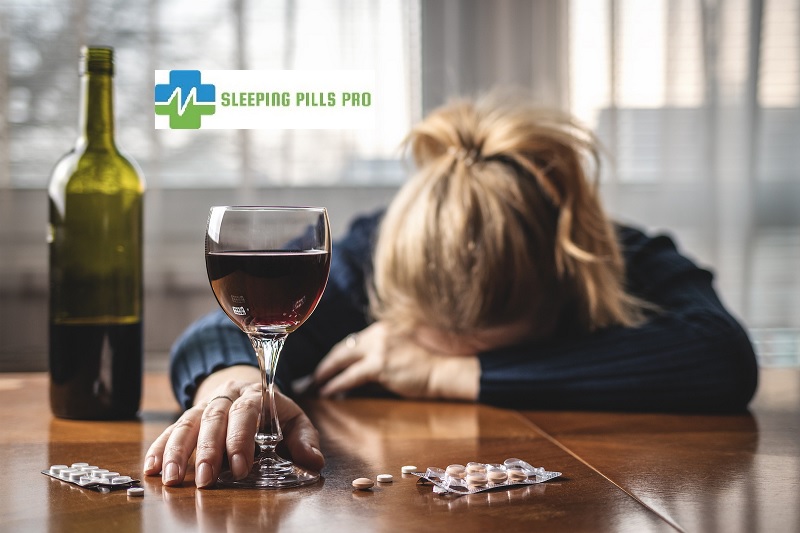Introduction
Modafinil and alcohol are substances that affect the brain and behavior, but they do so in fundamentally different ways. Understanding their similarities and differences requires examining their effects on cognition, mood, and health. We will discuss the same in today’s article.
Similarities
Impact on Cognitive Function: Both modafinil and alcohol influence cognitive processes, though in opposite directions. Modafinil is known for its cognitive-enhancing effects, improving alertness, attention, and executive function. Alcohol, conversely, impairs cognitive functions, leading to reduced attention, slower reaction times, and compromised decision-making.
Influence on Mood: Both substances can affect mood, though their impacts are divergent. Modafinil is often reported improving your mood by increasing energy and reducing fatigue. It may contribute to a heightened sense of well-being and motivation. Alcohol can also alter mood, typically producing feelings of relaxation or euphoria initially, though it may lead to depressive symptoms or mood swings with excessive consumption.
Potential for Misuse: There is a potential for misuse or dependency on both modafinil and alcohol. Modafinil, while not physically addictive, is sometimes used off-label by individuals seeking cognitive enhancement, potentially leading to psychological dependence. Alcohol, on the other hand, is widely consumed and has a well-documented potential for addiction and abuse.
Differences :
Mechanism of Action: Buy Modafinil is a wakefulness-promoting agent that primarily acts as a stimulant. It works by increasing the availability of neurotransmitters such as dopamine and norepinephrine in the brain, which enhances alertness and cognitive function. Alcohol, in contrast, is a depressant that primarily affects the brain’s inhibitory neurotransmitter gamma-aminobutyric acid (GABA) and inhibits the excitatory neurotransmitter glutamate. This interaction leads to decreased brain activity and impaired cognitive and motor functions.
Effects on Physical Health: The physical health implications of modafinil and alcohol use are quite different. Modafinil is generally considered safe when used as prescribed, with side effects such as headaches or insomnia being relatively mild. Long-term safety data is limited, but it does not have the same level of risk as substances like stimulants or recreational drugs. Alcohol, however, poses significant risks to physical health when consumed in excess, including liver disease, cardiovascular problems, and neurological damage. Chronic alcohol use can also lead to physical dependence and withdrawal symptoms.
Legal Status and Medical Use: Modafinil is a prescription medication used to treat conditions such as narcolepsy, obstructive sleep apnea, and shift work sleep disorder. Its use is regulated by medical guidelines and requires a prescription. Alcohol is legal and widely available, but its consumption is regulated in terms of age and driving limits. While modafinil is used under medical supervision for specific conditions, alcohol is often used recreationally without medical oversight.
Impact on Sleep: Modafinil is designed to promote wakefulness, which can be beneficial for individuals who struggle with excessive daytime sleepiness. It can disrupt sleep patterns if taken too late in the day. Alcohol, on the other hand, often leads to disrupted sleep architecture, causing fragmented sleep and reducing overall sleep quality. Although it might initially induce sleep, alcohol impairs the restorative stages of sleep, such as REM sleep.
Social and Cultural Context: Alcohol has a deep-rooted place in many cultures, often associated with social activities and rituals. Its consumption is socially normalized in many societies. Modafinil, however, does not have the same cultural presence and is mainly associated with medical or academic settings. Its use is often viewed with more scrutiny due to its cognitive-enhancing properties and potential for misuse.
Conclusion
In summary, while modafinil and alcohol both influence cognitive functions and mood, their effects are drastically different. Modafinil enhances alertness and cognitive performance without significant risks to physical health when used properly, whereas alcohol impairs cognitive and motor functions and poses various health risks, particularly with excessive use. Understanding these differences highlights the importance of using substances like modafinil under medical supervision and recognizing the broader social and health implications of alcohol consumption.

